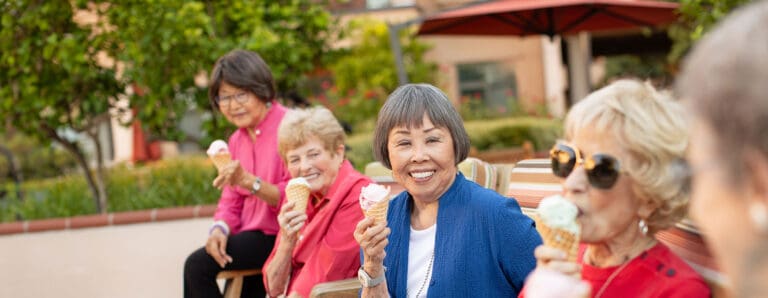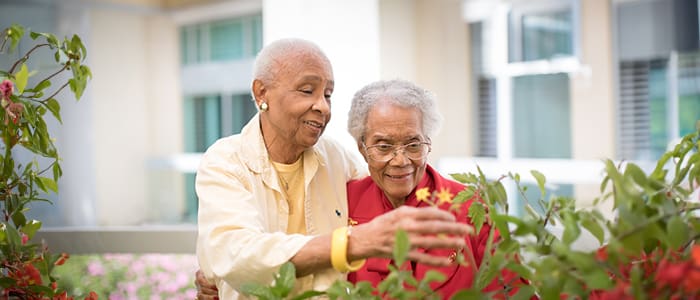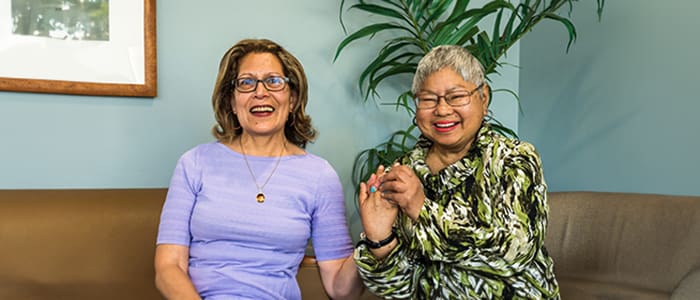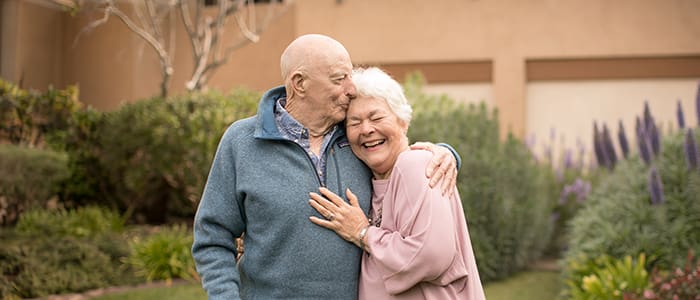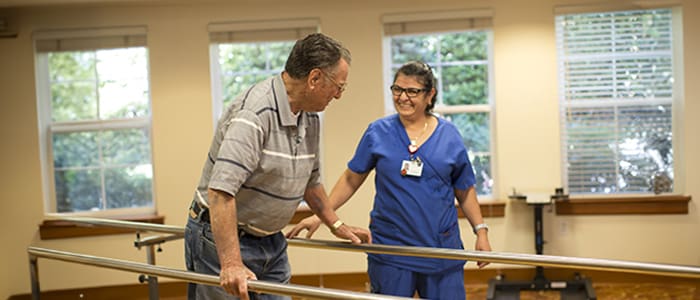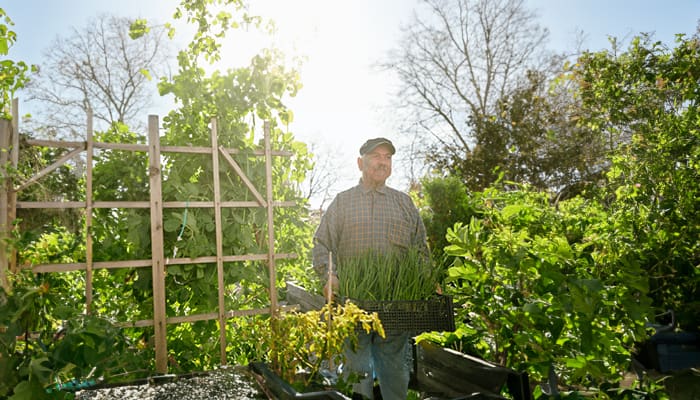October 1, 2019
10 Things about Social Call on Its 10-Year Anniversary
Social isolation and loneliness affect approximately one-third to one-half of the older adult population, negatively impacting seniors’ physical and mental health. For 10 years, Covia has been addressing these issues through a no cost to participants friendly visitor program, now named Social Call. When it was founded, the program only provided in-person connections to people living in San Francisco. Today Social Call works to prevent isolation by connecting people across the country. To celebrate Social Call’s 10th anniversary, here are 10 things you may not know about this life-changing program:
- Social Call is one way Covia lives out its mission. Covia promotes positive aging by cultivating healthy and engaged communities with a continuum of innovative services that actively support people’s well-being. Although Covia is known primarily for its Senior Communities and Affordable Housing Communities, it also has an extensive Community Services department, including Well Connected, Market Day and Social Call. Social Call is a vital part of Covia’s mission to help people live well and age well – wherever they call home.
- Social Call is a way to create community with older adults. Director Katie Wade finds that Social Call’s visits create a sense of community that is often lost in today’s busy society. “Social Call honors our need for connection,” says Wade. Thanks to Social Call, 194 participants ranging in age from 54 to 102 have weekly one-on-one visits with a volunteer.
- A “Social Call” can be an in-person visit or a phone conversation. Phone visits eliminate the barriers of transportation and mobility, so Social Call program managers can create matches based on personalities and specific interests. Participant Illana shared “I had a really interesting conversation with Sreemoyi on Sunday. She has spent two years in the country where I was born and knows so much about my culture. Thank you for matching me with her. This seems to be the beginning of a great friendship.”
- Volunteers are carefully vetted. Whether it’s a student who wants to give back to the community or a newcomer to the area who desires a connection in the neighborhood, volunteers are screened, trained and matched with seniors living in their communities. During the training process, volunteers learn indicators of a healthy relationship and reminders about communication skills. Often, Social Call finds volunteers through word of mouth and community resources like the library or on VolunteerMatch.
- Matching seniors and volunteers is an art. Covia’s Program Managers review the list of people needing a visitor and align preferences such as age, personalities and language requirements. Volunteers and seniors meet weekly for one-on-one visits to swap stories or enjoy one another’s company. In-person visits last one to two hours and phone visits about half an hour. The nature of the visit depends on the match: discussing a variety of topics and events, sharing stories, playing cards, going out for a cup of coffee and much more.
- Social Call visits improve mental and physical health. Social connection affects health in a myriad of ways, for both volunteers and participants. One volunteer notes, “Anna has such a great sense of humor. We can talk about really heavy, painful things, and we can still have some good laughs. In fact, she left with me cracking up as we said goodbye. I feel very lucky to know Anna and have her as a friend. When I left, she said that she was suddenly feeling much improved health-wise. I must say though, I think our visits benefit me even more than they do her! Truly.”
- Reciprocation is the key. Social Call is based on the idea that the volunteer and participant both benefit from the visits, ensuring a reciprocal bond. Being present, finding appreciation for the aging process, and gaining wisdom from hours of conversation with someone older are just two of the benefits that volunteers experience. Participants and volunteers often feel energized by the visits where they can provide emotional support and impart insight or share stories. Says one Social Call volunteer: “We chat about everything under the sun. We share our memories; we laugh together and sometimes we cry a bit too. We share a deep bond. I know our talks have lifted her spirits and made my life better too.”
- All participants desire a sense of connection. Wade, a mental health therapist in her earlier career, has observed the rise in loneliness. Despite the many ways available to connect with one another, research shows that people are increasingly more lonely. Once considered a problem facing mainly older adults, Wade believes it’s clear loneliness is a society-wide problem stretching across age groups. “Both volunteers and seniors are looking for social connections and Social Call is a conduit for that,” Wade says.
- Social Call brings creativity into the conversation. Social Call is introducing creativity into visits to foster meaningful experiences. During training, volunteers learn about creative aging. Some matches choose to incorporate storytelling, painting, poetry and more into their weekly visits to promote creative exploration, which often provides a deeper connection.
- Social Call creates unexpected discoveries! You might hear of June’s experience growing up in Germany, or learn of Jerry’s leadership in LA’s alternative music scene. You might find a friend that you never would have come across in your daily life or rethink your view of aging. For 10 years, in connecting people with one another, Social Call has offered journeys of exploration and amazing discoveries. We look forward to more adventures ahead and invite you to join us!
If you’re interested in learning more about Social Call, visit us on VolunteerMatch, or call us today at 877-797-7299 for more information.
